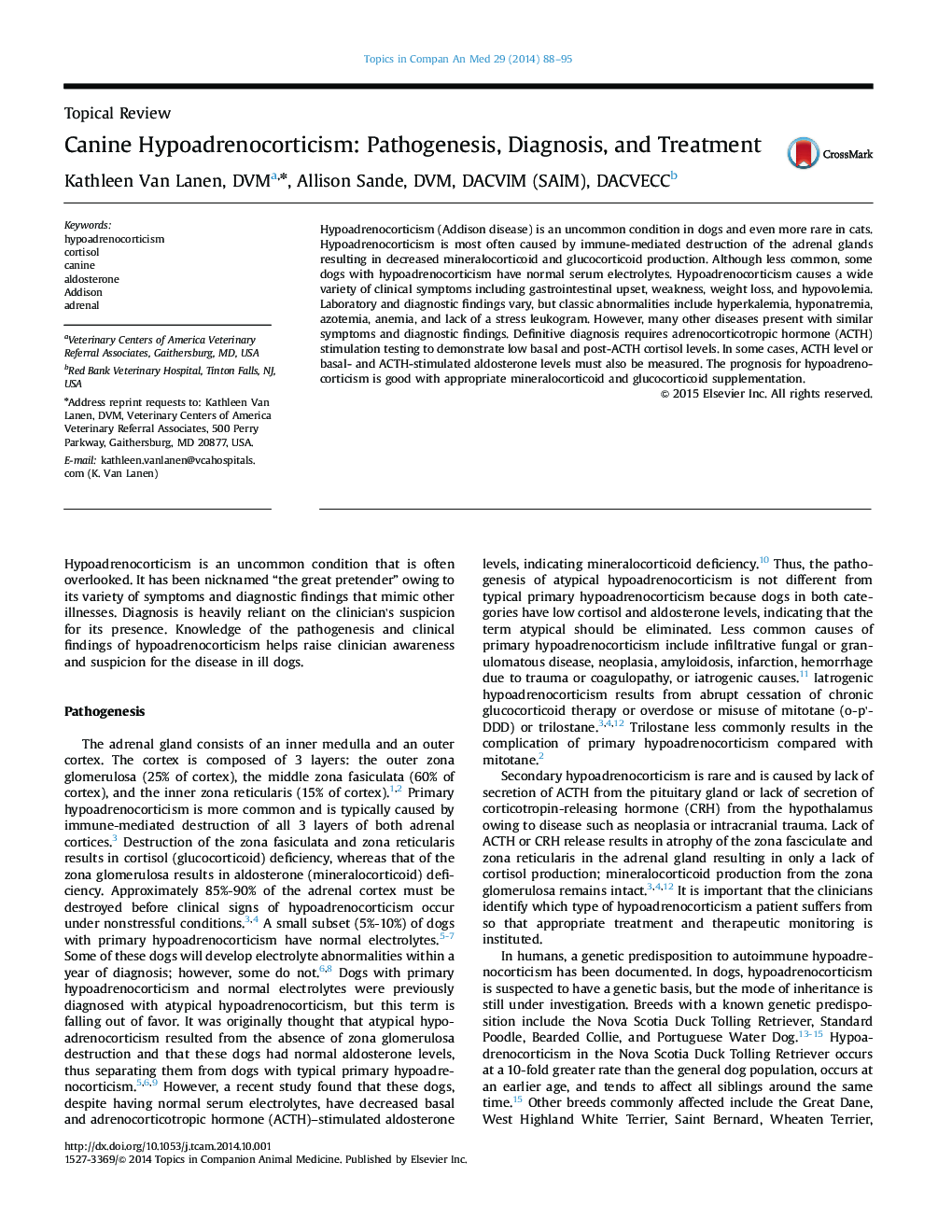| Article ID | Journal | Published Year | Pages | File Type |
|---|---|---|---|---|
| 2401088 | Topics in Companion Animal Medicine | 2014 | 8 Pages |
Hypoadrenocorticism (Addison disease) is an uncommon condition in dogs and even more rare in cats. Hypoadrenocorticism is most often caused by immune-mediated destruction of the adrenal glands resulting in decreased mineralocorticoid and glucocorticoid production. Although less common, some dogs with hypoadrenocorticism have normal serum electrolytes. Hypoadrenocorticism causes a wide variety of clinical symptoms including gastrointestinal upset, weakness, weight loss, and hypovolemia. Laboratory and diagnostic findings vary, but classic abnormalities include hyperkalemia, hyponatremia, azotemia, anemia, and lack of a stress leukogram. However, many other diseases present with similar symptoms and diagnostic findings. Definitive diagnosis requires adrenocorticotropic hormone (ACTH) stimulation testing to demonstrate low basal and post-ACTH cortisol levels. In some cases, ACTH level or basal- and ACTH-stimulated aldosterone levels must also be measured. The prognosis for hypoadrenocorticism is good with appropriate mineralocorticoid and glucocorticoid supplementation.
